A Milestone of Quality & Sound Broadcasting: Promoting Ghanaian Heritage & Aspirations in a Changing World – Rev. Joyce Ayree
I am indeed delighted to be a part of this historic event: The celebration of the 80th birthday of our dearly beloved Ghana Broadcasting Corporation (GBC). We’re here to reflect on the life of an organisation which has lived well, and also to look forward to its many years to come, exploring some prospects and challenges ahead.
In our Ghanaian context, if GBC was a human being, we shall affectionately refer to him as “Nana GBC,” the title “Nana” being a term of endearment and respect. So with your permission, in the course of my presentation, I’d refer to him (or should it be “her”) from time to time as Nana GBC. That’s my way of showing respect to an institution that is much older than myself.
I want to begin by first thanking the management and staff (previous and current) of GBC for your wonderful contribution to our nation in the area of public broadcasting.
My stint in government as Minister of Information gave me very deep insight into how the power of broadcasting can indeed bring about social transformation. At the same time, the manipulation of it, could jeopardise the future of a society. This is why we cannot and must not underrate your positive contribution to our nation’s growth and development through your service here at GBC.
To you belong the credit of helping to promote the threefold mandate of public broadcasting services to inform, educate, and entertain.
You have played an impeccable role in using both radio and television to promote a sense of national identity and maintaining social cohesion.
You have also been notably outstanding over the years in the very high level of emphasis placed on the proper use of language and the pursuit of journalism standards of accurate reportage. The standards set by GBC both in English and the local language is impressively high.
Through your programs, you have brought Ghana’s many ethnic groups and cultures together to weave a beautiful tapestry of national identity, which has attracted many tourists to our country.
Will the audience join me, with a round of applause, in showing our deep appreciation to the management and staff—previous and present—of GBC. …[APPLAUSE] Thank you! Thank you for helping to promote national heritage and aspiration.
And now, let me proceed by introducing the assignment that has been tasked me with reference to Nana GBC, whose birthday has summoned us to this place
Nana GBC: My Assignment
In what has been 80 tumultuous years of ups and downs, of successes and failures, of questions and answers, of challenges and breakthroughs, and of immense doubts and intense hopes, Nana GBC stands proudly today as the pioneer of broadcasting services in our nation.
That there are others co-habiting the broadcast space with him is a mark of GBC’s comradeship. I pray that those others will have the same privilege that has occasioned our gathering here—namely, GBC’s 8-decade longevity and accomplishments through thick and thin. I also pray that those walking in the footsteps of Nana GBC will work hard towards successfully managing the future challenges in the industry.
I have been given the topic “A Milestone of Quality and Sound Broadcasting: Promoting Ghanaian Heritage and Aspirations in A Changing World.”
If I were to summarize the long topic of my presentation for today, it will be in the form of two questions:
- How has GBC promoted Ghanaian heritage and aspirations in the past?
- How should it promote Ghanaian heritage and aspirations in the future?
Key Questions
Answering the first (“How has GBC promoted Ghanaian heritage and aspirations in the past”) will take us on a journey that meanders through several pathways of the last 80 years. I know there has been much reflection on GBC’s life history and accomplishments in the last few weeks. And we must not get tired of hearing about those, unless we think it is easy to live to be 80 years.
On the contrary, it is becoming rarer to live for that length of time in our crisis-laden world that makes no distinction between human and institutional targets. Hence, God forbid that in the euphoria of where we are, we forget where we have come from. For how else will we be able to choose the best path on which to continue the journey?
Answering the second question (“How should it promote Ghanaian heritage and aspirations in the future?”) is really the main focus of this presentation. My presentation is not technical. For the issues that confront us call for honest heart-to-heart introspection in the language we all understand. We live in strange times that are not kind or friendly to elders, be they human or otherwise. At no time in history has public broadcast had a more important role to help carve out sanity from chaos, and help to distill direction from local and global cacophony than now.
Thus, looking at issues of public broadcasting as they appear; and looking beyond what we see to the invisible parts that can bite us, is key. And, if our dear Nana GBC is to remain relevant beyond this octogenerial celebration, those of us seated here today, and those who are following the events closely through other media have to fully embrace the great role that both history and posterity expect us to play.
Now to the issue of the day.
- HOW HAVE WE FARED IN PROMOTING GHANAIAN HERITAGE AND ASPIRATIONS TO THE WORLD?
Without doubt, broadcasting has come a long way in Ghana. From one tiny seedling of wired radio distribution system that was planted on 31st July 1935, today (2015) there are almost 400 radio and TV stations that have been licensed in Ghana to operate as commercial ventures by private owners, as campus stations by academic institutions, those owned by communities, and those by the public sector. Of these media outlets, the Ghana Broadcasting Corporation (GBC), in its changing forms, has been at the forefront of that journey.
A Brief History of GBC: The purpose of starting a broadcast service in Ghana was one that was conceived by our colonial masters. History has it that while on their foreign assignment based on our shores, a new monarch, King George VI, was about to be installed in England. Far away from the pomp and pageantry that is characteristic of such coronations, the colonial masters here in Ghana settled for their second-best option. They got a wired broadcast contraption that relayed to their ears what their eyes could not witness.
Thereafter, it became an effective tool of transmitting England to Ghana, and ensuring that colonial influence spread even more effectively on our shores. Later, the broadcasting service was established in 1954. Originally known as the Gold Coast Broadcasting System, it was renamed upon the country’s independence in 1957.
In an ironic twist of fate, one of the post-independence changes was the name, form, and purpose of the broadcast system. From its humble days as Radio ZOY, it became the Ghana Radio and Television Corporation after independence. And its still-narrow confine was further expanded when it assumed the more encompassing identity of Ghana Broadcasting Commission later in 1965. It was assigned additional purposes—far more advanced and specific than the localized tool of colonization that its pioneers had envisioned for it.
The objects of GBC today include the following:
- To prepare in the area of culture, education, information and entertainment, programmes reflecting national progress and aspirations;
- To broadcast programmes prepared in the main Ghanaian languages and in English and other foreign languages as the Corporation may determine;
- To collect news and information in any part of the world;
- To produce and manufacture, purchase or otherwise acquire films, television and other mechanical or electronic records.
What Have We Done in the Past? Today’s topic seems drawn to serve partly as an assessment of the first two objects of GBC. How have we fared in our quest to prepare and broadcast programs in the main Ghanaian languages that reflect our national progress and aspirations?
The answer to this question requires nothing more than a postmortem of the past. And it’s not too difficult to make this assessment. We just need to recall our favorite programs, look through our statistics, and provide a report of how we’ve accomplished these objectives in the past. The questions to be answered include the following:
- What percentage of our current content is in English versus our local languages?
- What percentage of our contents still promotes our local heritage?
- What safe bridges have we built between promoting our heritage and being relevant to global realities?
- Overall, what is the general perception of the viewing audience about GBC scores?
But there are also some deeper questions that must be asked. And these have to do with how we have fared with respect to the larger purpose of public broadcasting in general—of which GBC is a part. Among the reasons for public broadcasting are the following four:
- Universality: Public broadcasting must be accessible to every citizen throughout the country. How have we fared?
- Diversity: The service offered by public broadcasting should be diversified, in at least three ways: in terms of the genres of programs offered, the audiences targeted, and the subjects discussed.[1]How have we fared?
- Independence: Public broadcasting is a forum where ideas should be expressed freely, where information, opinions and criticisms circulate. This is possible only if the independence— therefore, the freedom—of public broadcasting is maintained against commercial pressures or political influence. Undeniably, if the information provided by the public broadcaster were influenced by government, people would no longer believe in it. How have we fared?
- Distinctiveness: Distinctiveness requires that the service offered by public broadcasting distinguish itself from that of other broadcasting services. The public must be able to identify what distinguishes this public service from other media services. It is not merely a matter of producing the type of programs other services are not interested in, aiming at audiences neglected by others, or dealing with subjects ignored by others. It is a matter of doing things differently, without excluding any category. How have we fared?
These are some of the larger questions that must be answered as we look at the GBC’s past. How has it fared within the general framework of the role and principles underlying public broadcasting in general?
These, and the previous ones, are important questions that we need to ask periodically for our own internal assessment. And quickly move on from there, so we don’t stay trapped in the past.
What Are We Doing Now—And the Future? However, far more important than whatever we’ve done in the past, is what we’re doing now. And how we plan to meet our objectives as a public broadcast corporation in the future? That, for me, is the milestone that needs to be reached. And this leads to the second major question elicited from the assignment given me.
- HOW SHOULD WE IN THE FUTURE PROMOTE GHANAIAN HERITAGE AND ASPIRATIONS TO THE WORLD?
How best can we do this? As I stated earlier, the above question is really the main focus of this presentation. To get started, let me extract the basic components of my presentation from the topic. I propose 4 sub-heads to jumpstart the discussions that this presentation sets in motion:
- What has changed in broadcasting?
- What has changed in viewing appetites?
- What defines quality and sound broadcasting in this 21st Century?
- How can GBC leverage the changes in broadcast standards and viewers’ appetites to deliver quality and sound broadcasting?
The rest of my presentation will be taken up with attempts to initiate the crucial discussions that arise from these 4 questions or issues. I do not have the answers to our dilemma to dispense. And even if I did, I would want them accorded no higher status than as a single aspect of the multidimensional, multiparty solutions to what is our collective dilemma in public broadcasting.
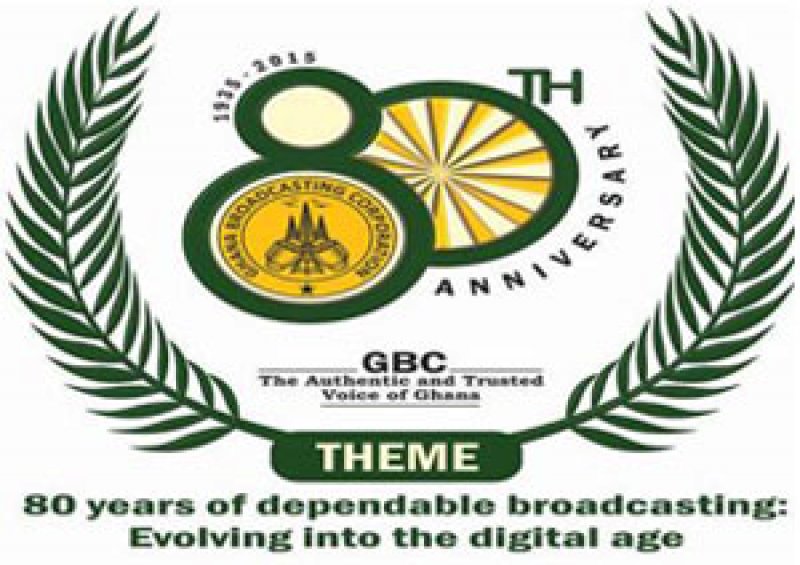
It cannot be any other way, for the issues that the management of a national public broadcast station generate transcend the narrow confines of journalism, encompass more than the restricted group that comprise the GBC governance and management, and outlast whatever short time we will spend here today.
Hence, although the occasion of Nana GBC’s 80th birthday affords us a good time to broach the topic in a very serious way, we can only initiate what should more properly be an ongoing discussion that aims to tie all the pieces together.
- What Has Changed In Broadcasting?
The world is changing, and none of us can fight that change. We have seen broadcast TV wane and the gains made by cable as its current serious competitor. And there are more. Here are some of the things that are changing. (And by the way, much of what I say in this section about TV broadcasting equally applies to the radio. For radio broadcasting is also metamorphising).
i) More Viewing Audience
Watching TV used to be what a few did. But that was back in the black & white TV days when global population was around 3 billion people. Now, at about 7 billion people, it follows by simple logic that more people watch TV. It also means that more people have opinions about content and quality, and influence global broadcasting standards more. Some of these are satisfied with just being able to influence TV regulations. But some others get fired up to go get licenses for their own broadcast stations, and introduce the content and quality that they missed from other broadcast stations.
ii) More Competition
Some skeptics posit that TV is dying. More pragmatic pundits know that this is far from true. Gone are the days when only governments owned TV stations. These days, there are different types of TV stations. With sufficient funds and interests, station licenses are more readily available now more than at any time in history. And with more licenses, there is more competition. Some choose to remain in mainstream broadcast TV. Others make the leap to cable. Still, others focus on online or Internet channels.
The bottom line is, viewers simply have more broadcast options and exploit this opportunity to full advantage. They can effortlessly switch to wherever they find attractive contents, and share their loyalties among the different competitors as well. In short, competition has never been as vivid as now. And it’s just starting. The rules are changing in so many rapid ways, that only those who are well positioned will not be swept away. This is true of TV and radio as well.
iii) More Producers
Today, literally anyone can broadcast information free to the world from his living room or even the bathroom. We have become an information-hungry race and found ways to satiate that hunger. Whether audio or video, cell phone videos with grainy images can go viral online within hours and reach the farthest corner of the globe with its content. Thanks to tech giants like Google who offer broadcast channels like Youtube accounts free.
Not too long ago (2013), the Google Inc’s YouTube announced that there are now about 1 billion active users on Youtube every month. The company stated that “If YouTube were a country, we’d be the third largest in the world after China and India”.[2] That’s one out of every two active internet user is either producing or sharing video. And the number is growing.
iv) New Stakeholders
Broadcasting has in recent times moved largely from TV to Cable. With the shift, we now have tracking devices attached to cable routers. These trace vital indices, and track viewing patterns of watching TV, favorite channels and programs by gender and age brackets. Business decisions are then made based on the patterns observed.
Who calls the shots? It is the advertiser, the one who pays heavily for 30 seconds, one-minute segments on the broadcast to reach potential customers from among the viewing audience. He can track the number of people who watch his adverts. His production and marketing teams can also make projections based on those numbers and reasonably presume what the return on their advertising investment will be.
For them, program ratings is everything and they will do anything to get it. It is the horse that draws the carriage of the content they broadcast. If more people spend more time on soap-opera, religious voodoo, or pornographic contents, guess what? They will supply more content with more soap-opera, more religious voodoo, and more porn, so that those people, and additional viewers can keep watching.
The new stakeholders include those who use digital analytics to create content and drive the market. And without the ability to intelligently gather and analyze data, any public broadcast corporation is swimming helplessly against the tide of 21st century broadcasting.
v) New Technologies
From the wired sound transmission system that we trace our GBC origins to, there are now multiple options for viewers to choose from. Before, we used to gather around the TV set in the evenings to watch one show or the other and then discuss it at work the next day. You had to be by the box to get the content out of it. People missed favorite programs or sacrificed important appointments if they didn’t want to miss TV.
At the peak of global technological explosion, some people, aware of that problem, found alternative ways to address it. Why have to rush home to meet a TV so you could get what you want out of it? Why can’t you extract from the TV whatever you want, whenever you want, and in some instances, however too?
Meeting that need influenced the designs of new electronics and podcasts.[3] Now, many personal gadgets include TV viewing (and radio listening) options—phones, tablets, personal computers, and even vehicles. Programming is no longer bound by time or space. You can tune in to your favorite programs in whatever language, at any location where you are. You can program your gadgets to have your favorite programs recorded in your absence.
These new technologies have influenced broadcast formatting and quality. The multi-platform content delivery options impact production and delivery needs too. And the type of technology partly determines the type of reception that broadcast content will receive from viewers.
vi) New Pricing Patterns
Commercial broadcasting is a huge financial enterprise and cable is big news these days. Unlike with TV broadcast that has only viewers, cable has both viewers and subscribers. They make money off adverts that target their viewing audience. They also charge subscription charges at scheduled intervals. We are already familiar with that with DSTV charges and other cable providers. But that is just the beginning.
In some advanced countries, the pricing pattern is already more comprehensive and sophisticated. Internet, phone services, and cable broadcast are bundled together and provided by the same company. Customers pay subscription fees and receive access to an insane number of channels. By doing this, subscribers can view content on whatever device they can connect to their data sources. Payment is streamlined and easy for the customer. It also influences different technical and market details for broadcast production and quality.
All these are just a few of the changes that have taken place in the world of broadcasting. Many of the new sophisticated changes do not yet reflect in the management and operations of many public broadcasting channels. A lot of these grew up on viewer loyalty, a very unsafe variant to rely on in these days of multiple options. What is scary is that there are more phenomenal changes that are looming. GBC must take note, if it is to remain viable in the future.
- What Has Changed In Viewing Appetite?
Besides changes in broadcasting, there are also changes in the appetites of audiences. For several decades, public broadcasting enjoyed the unquestioned support of the society. The viewing taste of the audience was largely homogenic, and options revolved around several branches of the same public broadcast stations. To put it bluntly, we had no other choice than to watch what we were offered—just as a dependent child has no option than to eat whatever mama serves from her kitchen.
Fast forward to the last twenty years. The following are some of the major changes that have, I fear to say, irreversibly taken place in viewers appetites, and the factors responsible for them:
i) More Content Options
What are people watching these days? Content now varies wildly and are literally in the millions. Though I’ve tangentially mentioned this earlier, it’s worth emphasizing again that there are varied content options that are available to viewers today.
Practical instances of this are that we used to have Hollywood and Bollywood. Now, we have Nollywood and our own Ghallywood, which have given us a long list of content in different languages, reflecting different cultures, and targeted at various age groups.
News is retailed through different venders—local and foreign (CNN, BBC, Aljazeera, CCTV, etc).Local vendors retail news according to the political and religious leanings of the owners. Religious channels retail part of their news according to their beliefs.
Documentaries are now better than before. War, crime, and gangster movies are enjoying unprecedented acclaim. Comedies and dramas cut across more themes, and even the relatively new genres of animations and sci-fi (science fiction) productions have become quite successful additions to the mix.
Bottom line, the more options there are out there, the more pronounced the viewers’ power of choice. None of us is simply content with whatever broadcast stations serve us. It has to match what we want, or we will flip the channel—or in the case of radio, turn on to another FM station. This has raised the stakes for quality, soundness, and variety of contents produced by broadcast stations that are interested in making it through this century. And the commercial stations seem to have the upper hand with this.
ii). More Viewing Media
Technology has blossomed and created commercial broadcast competitors who use various channels to reach customers. In the past, the only way to view broadcast content was through the TV set. Now, it is just one of the many different options.
Minimum industry standards require every serious broadcast station in these postmodern times to have various online portals with limitless options. Channels like youtube, lulu, HBO (Home Box Office, American premium cable and satellite television network) are some of the media channels that have revolutionized broadcast along these lines. There are also online (Internet or web-based) broadcasting that allow for live streaming of content in ways that sufficiently duplicates TV as a medium.
- What is Quality and Sound Broadcasting in Today’s World?
Thus far, we’ve talked about our changing world and the new breed of humans whose viewing appetite has changed from what used to be the norm. These changes are both alarming and refreshing, depending on who is involved. But they do shape the quality and values transmitted in broadcasting.
Ultimately, society places the primary responsibility on public broadcasters to moderate these changes with quality and soundness. Others can get a free pass in some instances, but practically every society holds its public broadcast stations responsible for content that is sound and of good quality—that is, what reflects the values of the society and the ethos of excellence.
So, what makes broadcasting of good quality? And what makes it sound?
There are many definitions of quality. Words like “excellence,” “superiority,” and “class” are apposite. And words like “complete,” “comprehensive,” “thorough,” “healthy,” “unblemished,” and “whole” are a few synonyms used to describe sound. We are all quite familiar with these terms as they relate to broadcast content. They represent programming that is intellectually stimulating, uses safe and correct language, has good visuals, and is compiled intelligently.
In a paper titled “Public Service Broadcasting, A new beginning or a beginning to the end”. Using the BBC as case study, Dr. Karol Jakubowicz argues that, the idea behind public service broadcasting remain strong. The underlying aims of public service broadcasting such as enhancing culture, promoting education,maintaining social cohesion, and strengthening democracy are vital ones and warrant public intervention. He believes that, this is even truer in a transformed media environment- while the audiences and engagement patterns change so must the broadcaster. His approach even suggests a name change from “Public Service Broadcasting” to “Public Service Media”.
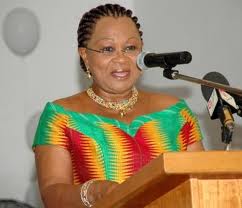
It is upon the underlying aims of enhancing culture, promoting education, maintaining social cohesion and strengthening democracy that we can determine the milestone of quality and sound broadcasting by GBC.
In this sense Professor PAV Ansah, is right when he mentioned that one achievement of radio in Ghana has been the forging of a national sense of identity. And for this, GBC must be credited with the impeccable role it has played in using both radio and television to promote a sense of national identity and maintaining social cohesion.
Cantrill and Allport refer to this integrative role of radio when they wrote:
“When a million people hear the same subject matter, the same arguments and appeals, the same music and humour, when their attention is held in the same way and at the same time to the same stimuli, it is psychologically inevitable that they should acquire in some degree common interests, common tastes and common attitudes” (Cantrill, H and Allport G.W. 1935.
Again, one of the areas that GBC has been notably outstanding over the years has been the very high level of emphasis placed on the proper use of language and journalism standards of accurate reportage. The standards set by GBC both in English and the local language is impressively high. It is, therefore, no accident that most successful broadcasters have passed through GBC somehow.
These broadcasters have also laid the foundation stones for other private broadcasting networks in the country to augment the role GBC is playing.
Indeed, the promotion of national culture through entertainment and education programming has been central to GBC’s achievements over the years. Here, again the recognition of diversity and respect given to the ethnic backgrounds of the society has played a major role in promoting national unity. Many rural folks would appreciate more accurately the Adult Education programmes in the local languages and the very entertaining local drama in the various languages. In terms of such programming and providing access to information country wide, the role of GBC is noteworthy.
- How Can GBC Leverage the Changes in Broadcast Standards and Viewers’ Appetites?
This section of the presentation is for me the real focus that should engage our best thoughts and time. Against the background of the changes I have enumerated above, how can we swim strongly in the current turbulent tide of public broadcasting? Who are those making strides that we can emulate? What are the best practices that are missing from our governance, management, and basic operations of GBC that we need to quickly master and start to apply?
- Facts and Figures(i): Cross-Checking Our Identity
Public broadcasting is a subset within the bigger realm of broadcasting. It is unique and represents one of the most enduring custodians of a society’s values, heritage, and future. It serves as the society’s mouth to the larger world, and is the society’s “selfie” (self-photograph) for the world to see.
In its most ideal state, public broadcasting is a public service institution, authorized and licensed by the society where it has its geographic address. On one hand, this societal support is a guarantee of supplemental provision that will help the public broadcast station accomplish its goals. On the other hand, its continued existence requires the most diligent efforts and stewardship, defined largely by the quality and soundness of its broadcasts. Thus, in a unique way, public broadcasting and the society that licenses it are interdependent and bear mutual responsibilities to each other.
It bears repeating against this background therefore, that GBC is a public broadcast corporation. Sections 8(1) and 9(1) of NLCD 226 enshrines this and provides as follows:
8 (1) It shall be the duty of the Corporation to provide as public service, independent and impartial broadcasting services for general reception in Ghana.
Section 9 (1) establishes a number of basic functions the Corporation is expected to provide as a public service broadcaster:
- Government announcements;
- Party political speeches dealing with the views and policies of the various political parties;
- Speech expressing different viewpoints on matters of controversy;
- Matters of any kind representing the mainstream of religious thought or belief in the country.
Permit me now to share with you how, I believe, GBC can apply these principles so as to preserve our unique identity as Ghanaians. I hope you wouldn’t mind if I speak to you from my heart. If there’s one thought I want you to take away from my presentation today, it is:
As our duly-established public broadcast provider, we regard you as one of the key custodians of our culture, values, and aspirations as a nation. Consequently, we have entrusted you to be our primary medium to promote these core parts of ours to the outside world.
We hold you accountable that this is done well. That in speaking for us, you will use a voice that will be audible enough to not be drowned amidst other competing voices.
You must be a voice for the voiceless. As the nation’s sole-public service provider, you have an obligation to promote alternative views for the purpose of enabling and encouraging debate that is vital for the functioning of democracy. You must ensure that the general population has access to a broad spectrum of views on issues of public concern.
You must continue to lead in promoting tolerance and understanding amongst diverse groups in society. You must facilitate discussion around national development/poverty reduction plans, peace agreements, reconciliation/dialogue processes
In being our face, you must use images that will embody our glories and struggles, as well as our dreams and aspirations in winsome and balanced portrayals of us as a people with a mission, who will not be daunted in our progress towards growth. I hope you, and other comrades that have received our broadcast licenses will remember these important details. These, in a nutshell, are the expectations that millions of Ghanaians have of you as GBC.
In this context, may I suggest a timelines principle from God’s Word to guide GBC’s radio and TV broadcasting:“Whatever things are true, whatever things are noble, whatever things are just, whatever things are pure, whatever things are lovely, whatever things are of good report, if there is any virtue and if there is anything praiseworthy—meditate on these things” (Philippians 4:8).
I know there have been struggles that have impinged this, and I will touch on these briefly before concluding this presentation.
- Facts and Figures(ii): Holding The Mirror to Our Face
While scouting the internet for external reports on GBC or on any of its subsidiaries, I came across a beautiful write-up about GTV. Since the future of broadcasting as is evident from now is largely visual, I was fascinated by the following sentences here and there that I strung together as follows:
GTV broadcasts mainly local programming, with over 80% of the schedule consisting of original productions. Although entertaining, most of the shows on GTV are either educational or attempt to address Ghanaian social issues. It has affiliations nationwide and covers 98% of the airwaves in Ghana, making it the most powerful mode of advertisement in Ghana.
Although GTV is largely funded by the Ghanaian government, it also collects annual fees from viewers (defined as every Ghanaian who owns a TV and has an erected antenna, regardless of whether they watch GTV or not). Even though GTV has been around for quite a while it still has some basic broadcasting problems and this makes it far from being a world-class station like FOX, MNET, CNN or BBC.[4]
GBC has a total staff strength of 1764. As at its last report, it projected a revenue of GhC22 million for its 2014 fiscal year.[5]
Clearly, some people expect us to have attained the level of CNN or BBC. Understandably so. We can argue all we want, but the age of GBC demands expectations of commensurate abilities and success, so we can’t blame those who lament our not being where we ought to be. If we don’t ask ourselves, strangers will ask us, or talk about it behind our backs.
In contrast to GBC, which has very little accurate information online, the following is basic information about BBC, one of the public broadcast corporations we have been compared with:
The British Broadcasting Corporation (BBC), the UK’s public-service broadcaster, is the world’s oldest national broadcasting organization. It started 18th October, 1922 (92 years ago) and is today the largest broadcaster in the world by number of employees, with over 20,000 staff in total, of which 16,672 are in public sector broadcasting. It was established under a Royal Charter and operates under its Agreement with the Secretary of State for Culture, Media and Sport.
BBC produces programs on broadcasting, radio, and web portals. It provides services on television, radio, and online media. From 1 April 2014[which means very recently, in response to changes in the broadcast landscape], it also funds the BBC World Service, launched in 1932, which provides comprehensive TV, radio, and online services in Arabic, and Persian, and broadcasts in 28 languages.
Its work is funded principally by an annual television license fee which is charged to all British households, companies, and organisations using any type of equipment to receive or record live television broadcasts. The fee is set by the British Government, agreed by Parliament, and used to fund the BBC’s extensive radio, TV, and online services covering the nations and regions of the UK.
Around a quarter of BBC revenues come from its commercial arm BBC Worldwide Ltd. which sells BBC programmes and services internationally and also distributes the BBC’s international 24-hour English language news services BBC World News and BBC.com, provided by BBC Global News Ltd. BBC was able to generate £5.066 billion for the 2013/2014 fiscal year.[6]
What Lessons for GBC?
Four things jump out at me from these extracts about GBC and BBC.
- At 80 and 92 years old respectively, the 12 years age difference between the two corporations is not sufficient justification for the wide chasm that currently marks the quality and soundness of their content; the reach of their operations; their multiple sources of income; and the amount both are consequently able to generate annually. Thus, it is not about age, but about effectiveness and how relevant one is able to stay with changing trends and standards. Aljazeera came into existence in 2006 (some 71 years after GBC), but it is today very competitive worldwide.
- The institutions of government that are involved in BBC’s success are similar to ours—the executive and legislature. But the focus and the impact in both instances appears to be different. Both levy television license fees, but one apparently goes the extra mile beyond that for it to be getting different results.
- Ghana is about the same geographic size as Britain, though with about half of its population. There are however more tribal and cultural diversity in Ghana than in Britain. Yet, BBC is able to produce good quality local content, which it then sells to its commercial international arm, BBC Worldwide. So, in a way, it is its own competition and is thereby able to stay immune to the rumbles and muscling of external competitors.
- There is more information out there about BBC than GBC. In fact, the shortage of information on the latter is what led to more reference about GTV than GBC in this section.
I bring these issues up because the truth is evident and out there on the internet, no matter how hard we close our eyes and ears to it. We cannot afford to linger in the cocoon of our modest achievements and find justifications for reasons to not try harder. Whatever we have accomplished in the past, when set alongside our peers, we will realize that we still have a long, long way to go. And it is in our best interests to focus on the long journey ahead of us, rather than on what we have been able to scale through in the past.
- Facts and Figures(iii): The Elephants in Our Broadcast Room
I am tempted to rush in to present options that we will need to critically consider as a nation as we move towards a more viable public broadcast system. But I fear that even after holding the mirror to our faces, we might still find a way to ignore or downplay glaring problems that we need to address if we are to realize this dream of a vibrant public broadcast system of the 21st Century.
To put it bluntly, there are two elephants that I see in our public broadcast room that will not go away unless pushed out. This occasion gives me the opportunity to bring up the issue.
- Reduced funding
We have spent considerable time in the past to talk about the relevance of GBC and the propriety or otherwise of government funding for it. Some have pushed to divest the government of future responsibility for GBC and remove it from the list of its priorities. This argument has been closely linked with funds, and the argument that government should rather spend money on meeting real needs of the citizens, rather than use taxpayer’s funds for GBC. The arguments have downed to a whisper, but are still firmly lodged in many mindsets.
But what can possibly be sufficient justification for such a move? That broadcast is not part of government’s responsibilities to its citizens? That the media is no longer the fourth arm of any democracy and public broadcasting a crucial part of the infrastructure of citizenship and democracy in the present and for the future? As the citizens of our fledgling democracy become more aware of their rights and get more engaged in their obligations, what will be the engine to drive the process if we throw GBC away to the wolves?
To make the issue of funding a determinant of value and relevance is scary and makes us sitting ducks for the threats that yet lie in our future. Since we are looking at public broadcasting, from the trend in other countries, GBC has not been exposed to any real threat yet. And let me explain, using the example of increased commercial broadcast business that I mentioned briefly earlier.
Globalization is serious business, and Ghana is vulnerable to big sharks coming in to feed on our broadcast market opportunities. We can be certain that there are big players in the world of entertainment and commercial broadcasting that are scouting African markets from afar. They know that our hearts are warm and our doors open. They know that we can benefit from the foreign direct investment that their new stations will inject into our economy, so they will come. But because of our current epileptic power problems, overhead will be high. So, why should they run at extra cost when they can afford to wait?
Once the timing is right, these competitors will swoop in and come with attractive offers that we have never imagined. Some of our best personnel and staff of GBC will be lured away. Corporations and homes will be able to enjoy new bundled offers that will astronomically expand our viewing options. We will all welcome it, seeing how it represents novelty and greater global inclusion. The commercial operators will flourish with subscription fees plus advertisements, and we will enthusiastically embrace the idea and think even less of GBC than many of us do now.
What impact will this have on our dear Nana? GBC viewing audience will drop further, making advertising even less profitable as a means of augmenting their subvention. And who will promote Ghana’s heritage then? The broadcast stations whose main motive for obtaining licenses was commerce?
We might be able to push back a little with some measure of legislation, but it is a growing phenomenon that we cannot effectively prevent as a democratic nation and a free market. This is the era of de-regulation of the media space, and not more regulation. We just need to think carefully about what our values are, what our priorities should be, and how best to thrive in this post-modern, globalized age with its invigorating changes.
- Pull by stakeholders
In the past, we have had brush-ins over GBC’s role and operations, as well as over its contents. After all, if GBC is a public corporation, then taxpayers should have a say on their contents. Some decry any content that does not align with their perception of information. I hope such wranglings have ceased and we now adopt a more mature approach to deal with our need for quality and sound broadcasting.
If GBC is a public corporation, it should use taxpayer’s funds judiciously. And there is no question about that. But we have to be careful that in our focus on judicious use of public resources, we do not turn GBC to a narrowcasting hermit whose preoccupation is only news and piling of content that are aimed only at keeping the citizen informed, and not entertained.
In the minds of many viewers, GBC is regarded as the government station that you tune to for some local news and watery entertainment options. It is not yet seen as a good source of clean entertainment, which is a component of good, broad-based programming. Inadvertently, some of the commercial competitors have invested in accessing credible local and international news and dangled it as a carrot to woo some of the viewing audience.
Given all these, where do we go from here? How can we develop cost-effective, premium content that will enhance our appeal locally and globally and positively impact our bottom line? What steps can lead us in the path of these objectives? What frameworks can best secure this?
- Facts and Figures(iv): Putting Our Hands to The Plough
Hour by hour, 80 years have come and gone for GBC. It has been able to accomplish much good and has weathered many storms. But the future stretches ahead and beckons those who would venture into it with intense new demands. The entire world has changed and promises more rapid and fierce changes that will test the strength of our public broadcast.
The tentacles of globalization have already reached into our bedrooms and riveted the attention of our children to foreign contents for most of their viewing times. The wish of many of our finest broadcasters remains to catch the attention of the foreign stations like our late illustrious Komla Dumor did and land a stint with BBC, or CNN, or Al-Jazeera, or others with more funding, more technologies, more opportunities, and more prospect for growth.
Ghana, where do we go from here to build up a credible, world-class GBC that citizens and foreigners alike will trust as their primary source of balanced programming?
As I said earlier, I don’t have the answers. But I present the following options as a starting point for crucial discussions that we need to engage in.
- a) Robust Investment by the Government
The real guarantor of quality broadcasting is investment. And if there is any time when funding for the national broadcast station should be stepped up to match the growing trends in both global and local broadcast landscape, it is now. Our multi-channel digital world is not at all kind to nations who lose their sense of direction and pride in this regard.
We should therefore stop looking at GBC through the lens of economics—how much it is, or not making. I am not saying that financial propriety should be thrown to the winds. I merely caution that we should look at GBC as a symbol of our heritage and the custodians of our societal values and heritage in as much the same way as the diplomatic consulates that represent our country overseas.
My fellow citizens, the world we live in today has changed drastically from what it was before. It will cost us money as a country to remain relevant in this highly-capitalist global landscape, and we must be willing to spend it judiciously. It is the only way to expect good returns.
BBC belongs to the British and it has only grown bigger, better, and more contemporary in the last several years. With robust funding, they are able to attract diverse audiences with quality and sound broadcasts. It is one of the preferred broadcast stations in many public places of the world. It has re-packaged itself and kept up with the changing times and technologies. It has embraced the diversity that defines today’s globalized world. In different languages and media, BBC remains one of the most beloved broadcast stations in the world. Aljazeera and VOA are close contenders. And now we have the new kid on the block—CCTV constantly improving, with the aim to make its mark among the favorite old-timers.
As a nation, we can accomplish much by continuing to invest in GBC without guilt or bitterness. It is our only public broadcast system and it is in our national interest to make it more alive and robust today than it has been in the last 80 years. We simply cannot achieve this with less funding. We need to aggressively invest in our Corporation, keeping our eyes on the certain returns that judicious use of our investment will guarantee.
- b) Adopt New Monetization Models
The biggest challenge many broadcast corporations generally face is that of new monetization models. The big sharks are playing big and able to stay afloat and recoup huge returns on their investments. In the US, four of the largest networks rely on the simple market formula of spending big on original programming that will attract advertisers, and later live on as lucrative reruns in syndication. It is public knowledge that BBC does the same and is able to augment the income they get from the licensing fees they levy on residents in Britain.
Which brings me back to GBC. Knowing your crucial role as custodian and promoter of our values and aspirations, I urge that you take the lead and become more proactive about increasing your funding sources. Don’t rely on one source of income to hope to fulfill this role creditably. Even if government increases your funding, the broadcast space has endless opportunities that there will never be a shortage of doing more. But to do more costs more. And if other broadcast corporations are already doing that profitably, without sacrificing the quality and soundness of their content, we need to be more intentional about learning what they are doing, how they are doing it, and adapting those successful models to our own operations.
- c) Deploy New Technologies
We no longer operate in local space, and need to remember that in all our planning. Our airspace forms part of the global arena where information can be tapped and used as the judge of our global relevance. It is therefore crucial that whatever we put in there is a befitting reflection of who we believe ourselves to be.
Broadcasting now and in the future is heavily dependent on technology. Rapid innovation drives production designs and delivery mechanisms, unlike in the days of monochrome productions. If we want to pass the quality and sound test of viewers, and retain their attention, we will have to be able to deliver programs to them where they are. Not just on TV or radio, but also on news media and mobile platforms. And in a way that will stand out from the zillions of contents that are out there for viewers to use from. Do they want to view or listen to GBC programs on their Ipads or phones, or on Youtube?
How can GBC exploit the data advantage to unlock future value from existing assets to increase profits? How can we better leverage the power of digital revolution to optimize our resources and increase our agility as a corporation?
Again, technology is the key. It is the shoes GBC needs to run in. the wings it needs, to fly, it will need even more and better technology as wings. Wherever, whenever, and in all the forms available out there, we need to keep up with modern technology and deliver.
But is it enough to provide and acquire new technologies?
d) Learn new technology skills
To those who are to use the technologies and this goes to you, GBC.
These days, there is a specific technology for many functions. Yet, these new technologies sometimes become available but the beneficiaries are not knowledgeable enough to use them. It is as we embrace these new technologies, understand and learn the skills necessary to operate and maintain them that we can benefit from the advantages they portend. If someone gives you a laptop, why pack it in its case and bang away at your old typewriter just because you don’t have the skills with which to operate it? You learn how to use it. You take time to understand how your machine works, and how it can serve you well for a long time.
What this means is that we must invest in the training of our broadcast personnel and staff. We must constantly retool our workers and do so periodically. Again, is it enough to provide and acquire new technologies, without training those who will use them? We need the development of our people.
e) Embrace and Enhance Your Strengths
Your strength is as the main provider of public broadcast services. The strength of others who inhabit the broadcast space in this country with you is different. Focus on what you are to do and do it well. Distinguish yourself more clearly. Set your programs apart by providing media content of public importance. You should take the lead in a steady supply of broad and varied programming that informs, invites public debate, and caters to all segments of the population. You are not a commercial network and should not compete with those that are in their arena.
As a public broadcasting corporation, there is a social contract between GBC and the people of Ghana. It was created at your birth, is implied by your continued existence, and should reflect on every program that bears your name. You might be able to get away with not doing so effectively now, but as time goes on, the public will pay closer attention to this obligation and hold you accountable to their consequent expectations.
Your content should therefore be sound and of good quality, and also play on your strength, not your competition. You are unique. Act accordingly. Let your contents be clear and the underlying priorities well thought out, based on wide consultations with the public, experts, and producers. The public wants to be able to trust you as a safe, innovative, and contemporary provider of independent, reliable, diverse, and up-to-date information and entertainment that reflects and preserves our values. Let your contents embody all of those needs and you will soar.
Assuming that you have all the funding and technologies that your heart longs for, the weightier task of actually meeting the needs of your primary consumers remains squarely on you. In the quality and soundness of your content, are you able to deliver?
f) Collaborate and Form or Join Strategic Alliances
The whole world is going the direction of collaboration and teamwork. Ambitious dreams are pursued and complex goals achieved by teaming up with others who have what you need and can benefit from what you have. Look around the Ghanaian audience and collaborate more. Are there independent producers, media experts that can help with certain parts of GBC’s tasks? That can help with consumer optimization and engage the public more with program design, not just delivery? You need to team up with such individuals and groups and harness their strength to enhance yours.
g) Update and Archive Relevant Information
There is a vast amount of information out there on the internet. And it keeps growing per second. The engineers behind most of the technologies that we use plan that these information should be accessible, searchable, and findable whenever and wherever people need them. There is an ongoing scramble to fill in missing gaps in world history. So, information is being dug out from way back in the past and archived for future generations.
Plans have been put in place to add to the benefits of cyber space by providing cloud computing services. It is therefore crucial that we organize relevant information about our media history as a nation and make these available for the whole world to be able to find and access. Also plan that these will be around for a long time, so provide sufficient context for them to make sense for whichever generation will find them.
I don’t want to talk too much about the current difficulty of accessing archived material on the GBC web site. The blank screen is not helpful, and to put it mildly, very annoying. But I take it that the busyness of preparing for all these celebrations must have slowed things down a bit. I hope this is fixed as quickly as possible. Enough said.
h) Rally the Public and Drive Ghana’s Future
I would not have done a good job, if in this presentation, I leave out a crucial aspect of the topic that bears close resemblance to quick sand. And that is the issue of our aspiration.
As I said earlier, the topic of this presentation is “A Milestone of Quality and Sound Broadcasting: Promoting Ghanaian Heritage and Aspirations in a Changing World.” I have touched on the issue of quality and sound broadcasting, the changes that currently define our world, and the issue of our Ghanaian heritage is not in contention. Every indigenous culture in the world has had to battle against the marauding army of civilization for the preservation of its unique features. Even with the constant vigilance, very few cultures have been left untouched. Our local customs and practices have gone through some changes of their own. These are realities that we cannot deny, and we continue to promote the language, the dress, the values, our food, our festivals, and other practices as best as we can.
But what are our aspirations as a nation?
The word “aspiration” is a subjective term that can mean different things to different people. I’m sure we all have different aspirations for ourselves and for our nation as we are seated here. But what good will such multiplicity of aspirations do us as a nation unless we are able to harness and concretize them to well-defined goals with deadlines?
In our public broadcasts, we are very clear on the language we want to use to convey our aspirations—the main Ghanaian languages, English, and any other foreign ones as deemed fit. But what are we to convey as our national aspirations in the area of culture, education, information and entertainment? Who decides this, and how well are we doing it?
i). Be A Pacesetter in the Promotion Our National Heritage and Aspiration.
Based upon the underlying aims of enhancing culture, promoting education, maintaining social cohesion and strengthening democracy, permit me to offer a few suggestions in our quest to promote national heritage and aspiration.
- Unbiased, enlightening information. Between the allure of propaganda in State broadcasting and the often gratuitous polemics of some commercial broadcasting stations, you must appeal to the audience’s intelligence and understanding.
- General interest and service programming. For public broadcasting, information is not restricted to newscasts and public affairs programs; it extends to all programs enabling citizens to find out about different subjects of interest to them and to all those programs simply called “service programs” or “general interest programs,” which often deal with matters of current or practical interest to people. These programs, which address consumer or legal issues, give practical advice, discuss health issues, publicize community services, etc., make public broadcasting itself a service offered to the public.
- Programs that leave their mark. GBC Radio and television must promote the arts and culture, broadcast existing works and cultural products, and support the creation of original works: theatre, concerts, and also light music or variety programs. GBC too, must feature entertainment programs intended for a wide public with strategic intent. But it must do so differently, distinguishing itself from commercial media. We can hope that public broadcasters’ programs will leave their mark. It is possible to present game shows that are both informative and entertaining. Drama, even at a low budget, also provides an opportunity to deal with contemporary matters of interest to people;
- National content. More than any other broadcasting programming, we must be national in content. This does not mean that foreign productions should be excluded absolutely; however, according to their role as a public forum, GBC must first promote the expression of ideas, opinions and values current in the society with respect to our cultural heritage and aspirations. However, there is a tendency to pay more attention to the programs’ origin than to their content. We must guard against identifying quality with national content; they are not always synonymous!
However, the public broadcaster must ask itself whether these international dramas are essential to the programming it wants to offer and compatible with its missions. Most of the time, they should probably be considered complementary.
- Reconciling freedom and responsibility. How can the necessary independence of public broadcasting from government and its equally necessary accountability be reconciled? The question is complex. The search for an answer to the paradox of how to combine freedom for broadcasters from undesirable state control, while at the same time ensuring the necessary level of desirable political accountability. In practice, of course, this circle cannot be squared, so that any structure and practice of accountability has to be a balance between the two.
These are all difficult issues to address. But we count on GBC to set the pace for us amidst the plurality of broadcasting options today. Always be a step ahead in harnessing our different ideas together in public discussions that will take the minds of people off the bread and butter issues of today to the hardcore issues that can sink us both here at home and abroad. There is a subtle wind blowing across our continent. It bears both positive and negative tidings. It is shifting our long-held values, and redefining future value expectations. For as long as life shall last, we shall have TV and Radio broadcasts. That much is clear.
CONCLUSION
So, Nana GBC is 80 and we are happy to be alive to celebrate this important milestone. History testifies that she was the one who led our nation by the hand to introduce us to the world of broadcasting, and help us establish our first presence in that world. She has served Ghana well, and given us offsprings to broaden her reach.
It is therefore not enough to simply pay lip service to such an important part of our Ghanaian heritage. How can we stand by GBC as we move into the changing world that defines our future, and ensure that her voice is not muffled, that her strength is not crushed by superior might, and that her relevance is not dimmed by rising rivals should be our most intense reflection during this important milestone of her 80th anniversary.
The example of BBC, an older sibling in the broadcast world, challenges us that the best days of GBC could very well lie ahead of its current eight decades. To say that she is too old and outdated is both unfair and unwise. Surrounded by overwhelming evidence that the future of GBC is not at all about age, but about having a clear direction and the right investment to remain relevant in the years ahead, may we not be found wanting again, in our collective civic responsibilities towards one of the most important vehicles of our future as a nation.
As I reflect on GBC’s past, and dream about its future, the most fitting way for me to conclude this presentation is to employ the words of a 19th century inspirational Christian author, Ellen G. White, and applying them to the experience of Ghana Broadcasting Corporation:
“In reviewing our past history, having traveled over every step of advance to our present standing, I can say, Praise God! …We have nothing to fear for the future, except as we shall forget the way the Lord has led us, and His teaching in our past history.”
Happy 80th birthday, GBC, and thank you all for listening.
This post has already been read 1079 times!
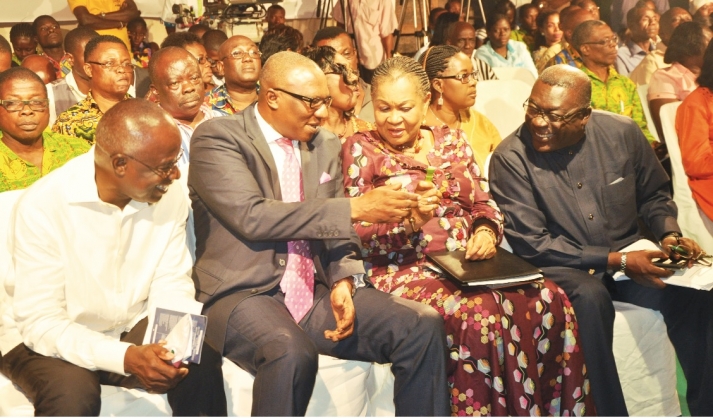
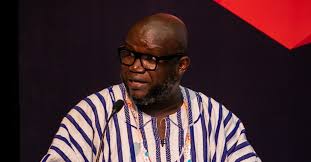
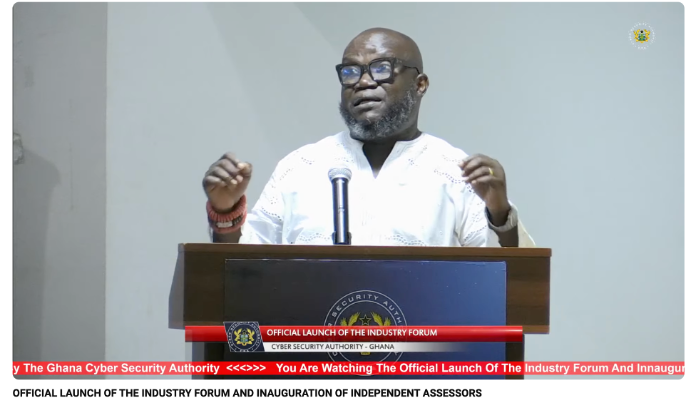
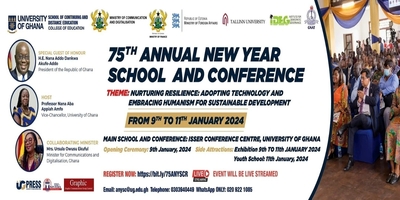



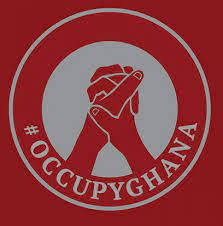
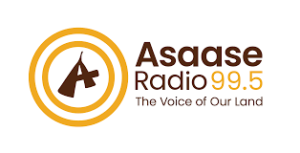
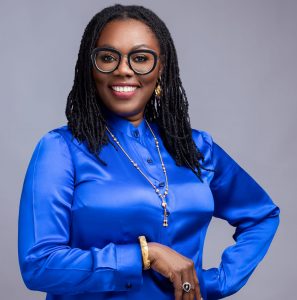

Post Comment